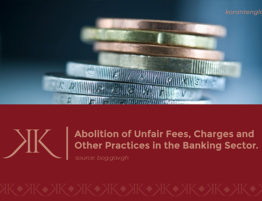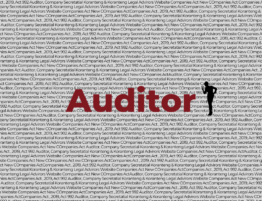
Registrar-General directs Companies to Change Auditors Before August 2022
The Registrar General has directed private companies to change auditors who have served for more than six years. The affected companies are to comply with the directive before August 2022, the Registrar General, Mrs. Jemima Oware, told the Graphic Business on Tuesday.
Mrs. Oware said the move was in compliance with Section 139 (11) of the Companies Act, 2019 (Act 992), which required that auditors that had served for more than six years be replaced and must not be reappointed to audit the company unless after six years.
The section states that “An auditor shall hold office for a term of not more than six years and is eligible for appointment after a cooling-off period of not less than six (6) years.”
Exempted companies
The Registrar General said apart from specialised institutions such as banks and non-bank financial institutions (NBFIs), insurance companies, capital market operators and special purpose vehicles (SPVs) that were regulated by special legislations, all companies were enjoined to comply with the directive.
The various regulations governing the operations of these specialised institutions already require that they rotate their auditors after a period of five to seven years.
Mrs. Oware said although Act 992 did not specify when the requirement should take effect, the Committee of Experts that worked on the formulation of the law and were now helping with its implementation had explained that the provision must take effect now.
As a result, she said, the directive impacted companies whose auditors had served six years or more prior to the coming into force of the law in August this year.
She explained that the current directive was to ensure that all affected companies were in line to effect the changeover of auditors at their next scheduled annual general meetings (AGMs) but not later than August 1, 2022.
Essence of rotation
One of the novel requirements under the Companies Act, experts concur that the provision for the rotation of auditors would help to reduce audit risks arising from auditors being familiar with a company due to years of continuous auditing.
Mrs Oware said the provision would also help to prevent complacency among auditors which had the tendency to undermine professionalism and ethics.
Using the circumstances that led to the Bank of Ghana (BoG) closing down nine banks and 370 other institutions between 2017 and 2018, she said it was evident that some of the auditors had become too familiar with institutions and had, therefore, failed to ensure strict compliance with requirements.
“Most of those auditors were compromised and that was only possible because they had been there for years and so found themselves too familiar with the company. Because of that, they failed to question certain practices,” she stated.
According to the Registrar General, her outfit was trying to avoid similar occurrences in the auditing of companies regulated only by the Companies Act.
Possible penalties
While advising companies to comply with the directive, Mrs. Oware said her outfit was confident that all affected businesses would effect the changes to their auditors by the due date.
On whether or not the Registrar General Department would sanction erring companies, she replied in the negative.
Meanwhile, Section 139 (10) of the Act makes it an offence to contravene Section 139.
The provision states that both the company and its officers would be made liable and punishable under the Act in the event of a contravention.








